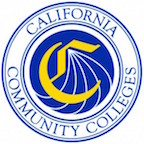 Nine historically Black colleges and universities have entered into an agreement with the California Community College Board of Governors. Under the arrangement, students who graduate from any of California’s community colleges with a grade point average of 2.5 or above will be admitted to one of the HBCUs as juniors and all credits will be able to be applied to a bachelor’s degree at the four-year HBCU.
Nine historically Black colleges and universities have entered into an agreement with the California Community College Board of Governors. Under the arrangement, students who graduate from any of California’s community colleges with a grade point average of 2.5 or above will be admitted to one of the HBCUs as juniors and all credits will be able to be applied to a bachelor’s degree at the four-year HBCU.
HBCUs participating in the agreement are Bennett College, Dillard University, Fisk University, Lincoln University of Missouri, Philander Smith College, Stillman College, Talladega College, Tuskegee University, and Wiley College.











Anyone with an inkling of consciousness should be very suspect regarding this agreement between California Community Colleges (CCC) and the participating HBCUs. Point one: If the UC system and the CSU system are being swamped with the influx of students(e.g., non-Blacks in particular), why CCC is not exporting their White or Asian students to neighboring states (e.g., Nevada, Oregon, Colorado, etc.) similarly. Point two: this initiative is similar to what occurred during the early 1950s, 60s, and 70s (in many instances) in which many southern states paid Black students to attend either an HBCU or HWCU in another state. Point three: if the enrollment numbers are literally in the single digits for Blacks in the UC and CSU system, this initiative will definitely decreased their numbers.
As a result, Black students will be hyper-marginalized in the California higher education landscape. In other words, whoever created this initiative should return back to the drawing board for further evaluation.
I agree with you Michael! Plus it also shows that Blacks achievement rates are too low for the UC system. New racism.
Actually attrition rates for black students are pretty equal when you take out the socioeconomic factors. Black students Do succeed in college – whether it is 2 year or 4 year. This is according to a study about African-American males and the attrition rates in community colleges. It should not be a blanket statement that black students don’t achieve PERIOD. Many colleges have these diversity initiatives for Latino students as well, so….
If it is not mandated that only Black students will participate in this initiative, I don’t see the problem. In many HBCU’S there are white, Asian and other ethnic students enrolled.
Re: Janice;
It’s quite apparent that you’re a staunch support of neoliberalism based upon your response. In fact, could anyone immediately defend the interests of others as compared to the majority of those who attend HBCUs. Yes, other ethnic groups attend HBCUs, however, their numbers should not increase to the point that it disrupts the overall cultural integrity of those institutions. For example, do you think the UC system or CSU system would ever allow the numbers of Black students to be equal to the White and Asian students? I don’t think so, because it would disrupt those bastions of White educational hegemony in the state of California.
It appears that you’re a staunch supporter of diversity and multiculturalism, show me where the multicultural owned shops in Los Angeles, San Diego, Houston, Chicago, Detroit, Miami, NYC, Philadelphia, Charlotte, or Atlanta?
WTH is “Cultural Integrity?!” Do explain!
I believe this partnership is a great idea. There are no traditional HBCUs on the west coast. Charles Drew was formed after the LA riots. Now these students get to graduate on time and experience an HBCU. For many of these students it will be there first time out of California. One of the things I learned in California was the enormous racism that exists there for blacks.